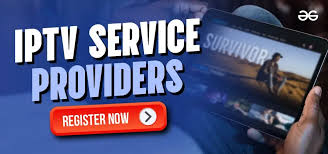- The Fascinating World of Slot Games: History, Evolution, and Modern Trends
- Slot Games: From Mechanical Reels to Digital Entertainment Powerhouses
- Slot Games: History, Evolution, and the Thrill of Chance
- The Fascinating World of Slot Games: History, Evolution, and Modern Appeal
- The Fascinating World of Slot Games: History, Evolution, and Modern Innovations
Exploring IPTV: The Future of Television Entertainment

In the ever-evolving world of digital entertainment, IPTV (united kingdom iptv) is emerging as a transformative technology. Offering a fresh alternative to traditional cable or satellite TV, IPTV uses the internet to deliver television content, providing greater flexibility, variety, and interactivity to viewers. But what exactly is IPTV, and how is it changing the way we experience television?
What is IPTV?
IPTV stands for Internet Protocol Television. Unlike traditional television services that rely on cable or satellite signals to broadcast content to your television, IPTV delivers television programming via the internet. This means that instead of receiving signals through a physical satellite dish or coaxial cable, IPTV streams content over your internet connection using data packets.
IPTV provides access to live TV channels, on-demand content, and even interactive services. This opens up a whole new world of possibilities, allowing users to watch shows, movies, and even sports events at their own convenience.
How Does IPTV Work?
The technology behind IPTV is relatively straightforward. In traditional broadcast television, signals are transmitted from a satellite or antenna to a set-top box, which then decodes the signals and displays them on your TV. With IPTV, content is delivered through your internet connection to a device (like a smart TV, computer, smartphone, or set-top box) that decodes and displays the stream.
There are three main types of IPTV services:
- Live TV: Real-time broadcasts of TV channels, similar to traditional TV, but delivered over the internet.
- Video on Demand (VOD): A service that allows you to watch movies, TV shows, or documentaries at any time, much like services such as Netflix or Hulu.
- Time-Shifted TV: This allows viewers to watch previously aired TV shows or channels, offering functionalities like pause, rewind, or fast-forwarding.
To use IPTV, you typically need a high-speed internet connection, a compatible device (such as a smart TV, PC, or set-top box), and an IPTV service provider that offers a variety of content to choose from.
Advantages of IPTV
- Variety of Content: IPTV allows access to a wide range of content. With subscription models and on-demand services, viewers can watch their favorite TV shows, movies, documentaries, sports, and news from around the globe. This access often goes beyond the reach of traditional cable packages, which can be limited by geographical and network constraints.
- Flexibility: Unlike cable or satellite services, IPTV provides a much more flexible viewing experience. Viewers can pause, rewind, or fast-forward through live TV, and access content on-demand at any time. For instance, you can start a movie on your TV and continue watching it on your mobile device when you’re on the go.
- Cost-Effective: IPTV services often offer competitive pricing compared to traditional cable or satellite subscriptions. Additionally, IPTV typically does not have the hidden fees or long-term commitments that many traditional TV providers impose. Moreover, IPTV services often offer a variety of flexible subscription packages, allowing customers to pay only for what they need.
- High-Quality Content: IPTV often supports HD and 4K streaming, providing crisp, clear visuals that are often superior to standard cable or satellite broadcasts. The improved picture quality is one of the reasons many viewers are making the switch.
- Global Reach: IPTV allows access to content from all over the world. This makes it easy for people to enjoy international channels, news, and even live events from foreign countries. With IPTV, geography is no longer a barrier to global television.
Challenges of IPTV
- Dependence on Internet Speed: Since IPTV relies on an internet connection, the quality of the service can be affected by the speed and reliability of your internet connection. Slow internet speeds can lead to buffering, poor video quality, or even disruptions in service.
- Legal Concerns: In many regions, the legality of IPTV services can be a gray area, especially with certain third-party or unlicensed IPTV providers that offer access to pirated content. Subscribers should always ensure they are using legal IPTV services to avoid potential legal issues.
- Device Compatibility: Not all devices may be compatible with IPTV services, and setting up IPTV on your home entertainment system may require specific hardware, like an IPTV box or smart TV with the appropriate app.
- Technical Issues: Like any online service, IPTV services can face outages, technical difficulties, or service disruptions, especially during high-traffic times or periods of maintenance.
The Future of IPTV
The future of IPTV looks promising, with technological advancements and the growing popularity of streaming services paving the way for new opportunities. As internet speeds continue to improve, IPTV’s ability to deliver high-quality, seamless viewing experiences will only get better. Additionally, the advent of 5G technology is expected to bring even faster streaming speeds, making IPTV more accessible and enjoyable for users around the world.
The development of AI-powered recommendations and personalized content based on viewing habits will also play a huge role in shaping the IPTV landscape. We may also see more integration of IPTV with smart home systems, creating an interconnected viewing experience that allows users to control and interact with their content more intuitively.
Conclusion
IPTV is fundamentally changing the way we consume television content. Offering greater flexibility, convenience, and variety, it is revolutionizing the traditional TV experience. While there are challenges to overcome, particularly regarding internet speed and legal concerns, the future of IPTV remains bright. As the technology continues to evolve, we can expect even more immersive, user-friendly, and high-quality viewing experiences that will reshape the entertainment industry. For anyone looking to take control of their TV viewing experience, IPTV offers an exciting and promising alternative to traditional television services.
